Horge (real name Jorge Montoya) has been a moniker passed around San Diego since 2012. Fueled by a love for the occult and hate for weak EDM, Horge brings a siege of drum & bass to dance floors begging to be possessed.
Nek from 27 club conducted an interview over Zoom with Horge recently. Here are Horge's answers to our nine questions.
Nek: We are recording now. The task here is that you will be answering a series of simple questions which were composed by me. So, if you think they are trash just feel free to blame me. Except one, one was composed by Debra, the very last one. So, ok, shall we get started?
Horge: Yes, I'm ready.
Nek: Ok, let's go. So describe your favorite and least favorite part about being a musician/producer.
Horge: Oh, boy. (laughs) Ok, so my favorite part of being a musician/producer is the ability that I have the means to express myself in a way that's unique to myself. I can create music that I hear in my head and feel in my heart. It's very rewarding to see other people resonate with that. Sometimes I get to show people my songs and then they start crying because I was sad when I made it. They can feel what I felt in that moment when I made that. So, the ability to connect and express myself through music is very powerful to me. My least favorite part of being a musician is definitely the financial side of it, because often times when I'm booked to play a show, and then I'm told I'll get paid this, and then I have to chase down a promoter. Often times they give me some bogus excuse as to why they can't pay me. I'm just like, well, all right, I had fun, you know, I'm not going to work with you again. See ya (laughs)
Nek: So based on your response here, I did some rearranging, and the second question would be this. I'm interested to know if you think that doing music, long term can be viable, even if you don't view it as a business model, or do you?
Horge: I think up until this year I would view music as a dream. That I was like, if I can do this full time, I would be very happy. This year I'm looking at it more as a goal because I've had so many more opportunities to work with music and to work with other artists, to work with TV firms, to work with potentially film, video games. Currently it's my only source of income right now and it's not a lot, but I'm just pushing through. I feel very persistent because of the connections that I've been able to make. Hopefully I can make the jump to doing this full time because currently my living situation is I live in Mexico with my family. So, I'm only paying my bills and I'm paying the bills at home. I'm not paying rent so I can afford to do music full time there, or I can afford to only do music. Hopefully I can make a jump to doing music full time, performing full time. So that's my goal.
Nek: That's good. Next question would be this how hard did you find working on music with other people? Would you picture yourself in a band or does this look more like a nightmare to you?
Horge: So my origin in music comes from bands. I love being in bands, but I would kind of be the the the lead creative force behind the band, often times. Where I would write everything in the computer, using guitar samplers and sample drums, and I would put it all in MIDI. Then I'd be like, "Hey you guys, I wrote us a song. This is what I want to play", and then they would listen to it. They would agree with it; they would disagree with it. And I'd be like, "Yeah, we can go and change it". That's how we kept track of our songs through MIDI on Reason 3 back in 10, 12, 13 years ago.
Nek: Reason 3, Yeah.
Horge: Yeah, so, I love being in bands, but when it comes to electronic dance music I've been having some issues, collaborating with people. I like to be the person in control, and the moment that's challenged, I have to take a step back and be like, no, this is a collaboration. I have to let in this other person's input. I value their input. So I only have very few collabs out there. I don't think I have any published. I might have some on my soundcloud from like a long time ago. I'm currently working with with an artist in Los Angeles, California, named Sakra that I've been having a blast collaborating with. We've been making so much different music lately, and I feel very good about that music, but then I was like, I'm going to give collaborations a shot again; I work with a couple other people and it's just like creatively we don't really mesh well, and I'm just like, Ok. So, I tend to stay away from collaborations, but I want to collaborate with people. I just gotta learn how to work with others.
Nek: Yeah, it's a human thing, right.
Horge: Yeah.
Nek: To want to do things with other people.
Horge: Yeah, absolutely.
Nek: A bit of a more fun question, this one. What is a music trend that has come and gone, that you absolutely despise, and what is a current music trend that you can't wait to go away?
Horge: Let's see what was a trend that came and went way that I absolutely despise and what's the current one? Ok, Very easy question. (laughs) So back in, I want to say 2012, 2013 kind of going into 2014, Big Room House was the thing.
Nek: Oh, man.
Horge: That was the charter on the board. It was when I was DJing at the time, in San Diego, wherever you went on a Friday, Saturday night, even sometimes Sunday night, you would hear Big Room House. It was just what people loved. So, when I was trying to get gigs outside of raves, because at the time I was playing illegal parties and I was playing raves, and I was like, "I want to play like more legit gigs" and they're like, "Can you play Big Room House?" And I was like, "No". I can say yes and make the money, but I just did not feel happy doing that. So I was like, "No, I'm not going to do it". But yeah, Big Room House, it came and it went and, I was really happy with that. There's a bit of a resurgence of it that I've heard lately; that there's been new Big Room artists, but it's like very sparse because there's not a lot of it. Which has been really interesting, actually. It's kind of like a breath of fresh air. The Big Room back then, I did not like, whatever is coming out now, it's pretty ok; still not my thing, but I'm like, that's cool. And the current trend that I do not like right now. Let me think. What is something that I do not like? It comes in Hybrid Trap. It's been kind of an old trend, but I still hear it. There is a sound design bit that happens a lot, in Hybrid Trap and even some Dubstep, some new Dubstep, that sounds like screeching brakes on a car that haven't been changed in years. It's just like very abrasive and it just sounds like white noise that's like oscillating. And, it's like, I get it, it's exciting, and actually that sound originated from Hardstyle, like very harsh, abrasive. In Hardstyle kind of makes a little bit more sense because the music's already kind of clipping and distorted on purpose. So when you hear that, it's like, oh, cool more distortion, let's go. (laughs) But when it comes to Dubstep, or like the new Dubstep, and it comes to Hybrid Trap, there's a lot of space because the drums are halftime. There's a lot of space in between when things happen that when you hear that one white noise lead it's all you hear. And it's just like I feel like I'm being attacked
Nek: You're so, so right, so right on this one. So next question, back to you being a music creator. It's this one. What has happened to you so far that has made you realize that you may be onto something with your music, despite all these situations in the music industry?
Horge: So I had one thing happen to me that was like very objective, like a very easy answer to that question. I've been listening to a lot of Techno, especially during the pandemic through all 2020. I didn't really like Techno before that, but then I started finding a lot of Techno that was very emotive and very emotional. It had like a lot of melody and drive to it, but then the repetition of it kind of helped me, in a way, disassociate from what was happening. So, when I was feeling depressed or I was feeling overwhelmed, with what was happening in the world, I was able to just put on my headphones and I was listening to KAS:ST, Introversion. Who else was I listening to? I was listening to all the big Techno names, that have music with melodies and chords, but it still had the same arrangement of Techno. So I was like, "Ok, I really love this. This is nice to me". Around the turn of the year is when I was like I'm gonna try to make it because I really like how it makes me feel. I'm going to try to recreate that emotion. Maybe I can help someone else feel that way. So I started making some of it, and one of my homies, who is like a prevalent name in Techno in San Diego, reached out to me. And I told him "I'm making Techno" and he's like, "Show me". So I sent him one of my songs, and he was like, "I want to hop on this with you. Can I help you finish it?", I was like, "Yeah, sure". So, it was like collaboration, but it was mostly him adding on to what I had already had. We made revisions back and forth. It was like two, three revisions that we sent back and forth. We were like, "Ok, cool it's done". So, we sent it to get a proper release. I made a new alias for it, and the alias is called Ophanim, which is like a biblical angel. We sent it to get signed, it got signed, got released, and immediately hit number one. It hit number 1 in the Techno charts. It stayed number 1 for a week and it hit number 2 overall on Beatport.
Nek: That's a cool milestone.
Horge: Yeah, it was right behind MUST DIE!'s debut album, which is like insane. There's these two kids essentially from Southern California, competing with international artists. It's funny because when it hit number 2 on the Techno chart, Charlotte De Witte, was the number 1. And we were like, "Ok, we're not going to beat Charlotte De Witte. She's a fucking legend". Then we woke up the next day and we're like, oh, it's number 1. (laughs)
Nek: That's an awesome story.
Horge: Yeah. So because of that actually, both me and the collaborator, his name is ElezD, have had a lot of opportunities with people coming to us. They're trying to work with us or trying to pay us for things. That's actually why I think that I can potentially do music full time and be comfortable financially, because of that. So many people have asked me to come to the studios to produce for their artists. I've had people start paying me for lessons. I've had just so many more opportunities open up for that. So, then I was doing like a live sound gig and I took a flash drive with my songs, you know my Techno songs, a mix, and like an artist EPK, and I had a couple of fast drives and I was like talking to people. I was like, "Oh, check this out", and people are like, "Oh, this is really nice". So, one of them actually hit me up and they're like, "Hey, we might have an opportunity for you to be a Techno opener on a big night. We're sorting it out and then we'll have a contract for you". So, now I'm doing a lot of legitimate music ventures. So, it's just like everything is happening so fast, within the past two or three weeks, because the track hit number 1 four weeks ago. The track hit number 1 and then everything just kind of started happening very fast, you know. So, it's like my breakthrough happened already, but it's a matter of keeping the momentum all the way up.
Nek: Yeah, yeah, of course. Good job there man. Good job.
Horge: Thank you.
Nek: Next question, what was a piece of advice that once upon a time you would look at like the holy grail of wisdom, but you have completely changed your mind on it and you will never, ever give it to a fellow music producer or musician?
Horge: Ok, let's see what was a piece of wisdom that I felt was like the Holy Grail, but then later on I was like, no, that's bad advice. (laughs)
Nek: Yup. Yes, yes.
Horge: Ok, so, then essentially when I started making music, because I was using Reason 3, it defaults to adding a mastering chain to your music. You have your mixing rack and then you start adding your devices, but the mastering chain is already on. So, it sounds loud and compressed and you know, it's not going to quit. That's how I was making music and I was just able to create. I didn't even consider mastering just because that was already there by default. I was able to make music and I was able to sound not good, but not terrible because of the master chain. And that's how I started uploading my songs, and people are like, "Oh, this is kind of cool", and I was like, "Hey thanks". Back then I would be like "Just add a mastering chain to your music and then just go ahead more creatively and worry about it later". Which is not good advice because as you're creating your music, you want to take care of everything that needs to be taken care of when the problems arise. Otherwise, at the end you're going to have a mess, that you're going to have to undo some of your steps to figure out where the mistakes lie. All because you were just mixing with the mastering chain on. It really is like you turn off the mastering chain and your mix is all whack. Everything's clipping; it's just like a mess. So I used to tell people just make music with the mastering chain, but now my advice is make music with a limiter. You know, that way your music doesn't clip. You can worry about you just making your song. At least with the limiter, you can see how much you're peaking so you know you can go ahead and just bring your levels down. You can kind of mix so that it sounds good to you still. You write your song, you do all the creative process first. When you're ready to mix, then you take the limiter off and then you bring your levels down to minus three or minus six. Whatever you're mastering engineer asks of you or if you're mastering your own song, you know, whatever works for you. (laughs)
Nek: That's a wonderful music producing tip there. I was awaiting for more of a marketing or a motivational type of advice.
Horge: Yeah, yeah.
Nek: This works better because this could be useful, you know, to more people that are serious. Ok then, next question is quite better said since we will go through it. Does the prospect of working on a whole album excite you or are you a singles person?
Horge: Oh, man. I am dreaming of the time that I get to start an album because I think in the world of electronic dance music, the art of the album is dying, except for Drum and Bass. Drum and bass artists put out albums consistently you know. They have transition songs. They have songs that explore other genres. Then, they have their singles that are like you know Drum and Bass or whatever. So it feels like a journey whenever I'm listening to an album, you know, not just a LP, not a long play, but like a curated album. I haven't heard many albums from artists outside of Drum and Bass. I've heard Techno albums that are really good, made me very happy. But it's just like any time that I've heard an album, from like a Dubstep producer or even like a House producer, it just feels like a collection of singles. There's no story to it. There's no fluidity; it's just like here's seven singles.
Nek: More of a mixtape.
Horge: Yes, there you go. It's more like a mixtape, you're right. So, I've been mostly doing singles just because that's kind of been asked of me by labels. But the moment that I have more legitimacy as an artist, more representation, I have more of a fan base, and I have more of a demand for an album, I'm going to fucking lose it. I'm going to go in the studio, lock myself up for like three, four months. I'm going to find all the session musicians, get a modular rack, and then I'm just going to focus on that creatively. I'm just going to make like what my life would have cultivated to to that point. You know, that's my goal; It's to get to a spot in my career that I can make an album and it can mean something. Not just like a self release, but it's like I'll have the platform for my album to go places, you know.
Nek: Gotcha, best wishes on that.
Horge: Thank you. Thank you.
Nek: So the second to last question, this one. So on this one, we will go through a quote by the actress Kristen Stewart, who, by the way, I think is a brilliant mind, who once said this phrase here: "Any real experience is the first time you experience it. You cannot duplicate that. It will always feel like a false imitation". So, let's transfer this to a creative process as a musician. Is it those the first mintues that you work on a song when you were struck by inspiration that will end up being like the 95 percent of the final version? Or do you go over and over a song, with nothing and nothing parts, until you are in a place to say to yourself, "This is it. It's done"?
Horge: Man, I really like that quote, a lot. It's a very powerful quote, and in fact, that actually does resonate with me a lot. I feel like my creative process tends to go more towards the first answer. Where like the first moment that you sit down to put an idea down is where most of the song is going to lie, instead of just having a version that just has revision on top of revision. I have this philosophy when it comes to coming up with musical ideas.
Horge: When I have an idea it happens when I'm not on my computer. I'll be watching television, I'll be in the shower, I'll be going out with my friends, I'll be even listening to music and I'll be like, "That would be cool if it did this instead". Then I start kind of like in my head, just thinking of like a modulation of what I had already heard. And I'm like that on its own is a strong enough idea. That's kind of like my creative process. That's how I come up with my ideas, but I don't rush to my computer. I don't rush to my studio. I don't rush to record it on my phone. I just let it sit in my head, and in the moment that I get to sit down and then put it down, if I don't remember it, then it wasn't good. So it's kind of like that. It's like if you experience that great idea in the beginning, and it's a wonderful idea, you're not going to want to recreate it if it didn't mean something to you. So, if I managed to remember it, after a couple of days or a week or even a month of thinking of the idea, and I can still put it down, and it's still the same idea that I had in my head, I'm like, "This is going to be a good song". (laughs).
Horge: Then I'm able to build off that very solid idea, instead of having to revisit it and then do revision on revision on revision. Like I'd only do revisions when I'm getting paid to do music, and that's just because the artist or the client is like, "Hey, I want you to change this. I want you to change that.", but when it comes to me, I'm very accepting of my own music. (laughs) It took me years to get there.
Nek: Yeah. Ok, awesome. So the last question was a last minute addition by Debra and this is it. What is your favorite number?
Horge: My favorite number. Give me a second.
Nek: (Laughs)
Horge: I'm going to say eight.
Nek: I feel like this could be the hardest question for you so far.
Horge: Yeah, that actually took a lot of process because I didn't just have that answer ready, but I want to say eight. Reason being the number eight appears in my life a lot, almost like I'm being followed by the number eight. My birthday's on February 8, 1993, so already lands on the number eight. If you take the first number of that and the last number of that, 2, 3, which is two to the power three: eight. Also if you turn the number eight sideways it's the infinity symbol, which, you know, the infinite potential. I don't know. I feel like a slight excitement, any time I see something that is just the number eight, or could be interpreted and morphed into a number eight through some abstract mathematical equation. I should look into what that means within numerology, especially because of the Ophanim thing I've been doing, and I see like the repetition of numbers. I'm like "Haha angel numbers" without really knowing what that means. I haven't delved into that part of that, but just because the number eight does have such a big prevalence in my life, I think I should see what that means. You know, I'm sure there's an answer out there for me that I can help it apply into my life.
Nek: My friend this has been wonderful. This is it. A snippet from this will go live to Debra's blog, and I mean, it has been a pleasure.
Horge: Absolutely. Very nice to meet you. Just a couple of things that I want to say is I do have an EP coming out on Forest Biz in August. That got pushed back because of art issues, but we still got to figure out the art. Then we're looking at August release. I do have a song coming out on compilation with that same label. I actually have a soft release coming out, that I'm going to be putting out, a compilation of Drum and Bass remixes of songs that are not Drum and Bass. It's going to be my second version of that. I already put out my first one last year, and so, this is going to be kind of like my follow up to that. Expect more Techno. No one knows this, but I've been working on a on a couple of synth pop songs, where I record my own vocals. Very 80's inspired, very new wave, very goth.
Nek: Ooh! Ooh!
Horge: So, when I can show that off I want to be able to perform that live. Where either I DJ it myself, grab a microphone, with like a processing track, and then I just fucking perform it myself, or I have a band maybe. That's what I've been doing; when I'm not making electronic dance music, I've been making synth pop. So, very excited on that. (laughs)
Nek: Very exciting stuff.
Horge: Thank you.
Nek: It was great meeting you.
Horge: Likewise.
Nek: You have a really good day and hopefully we get to talk soon.
Horge: Yeah, likewise. You have a great day too.
Nek: Bye.
Horge: Have a good one, bye.
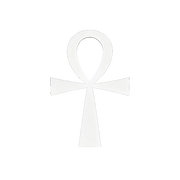
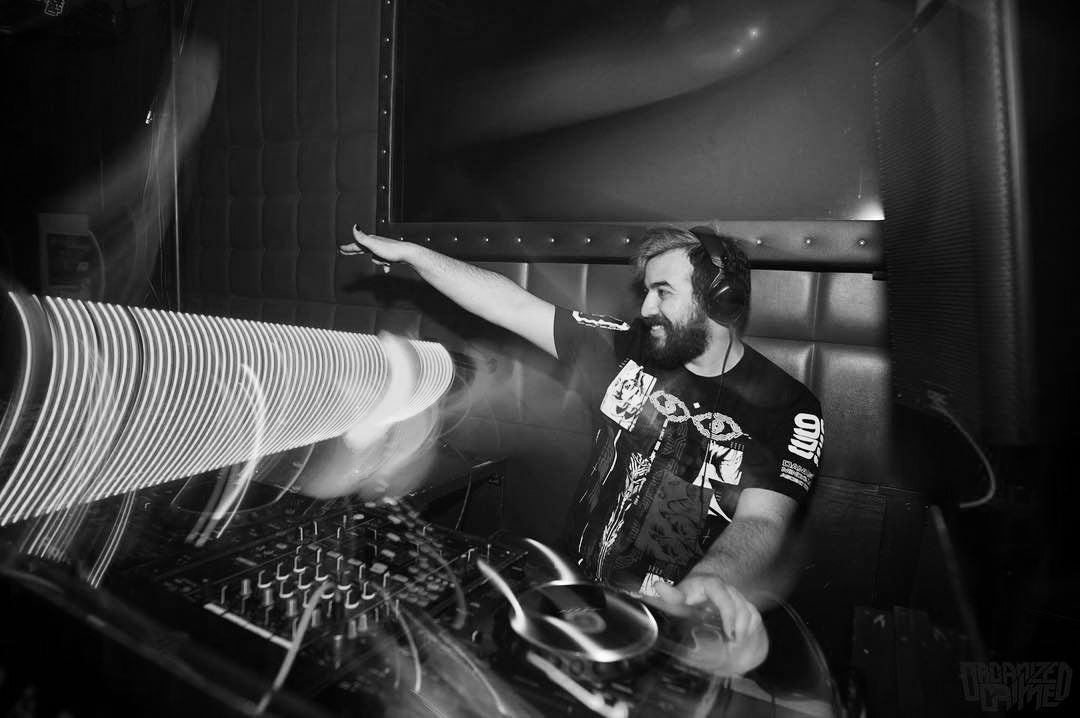
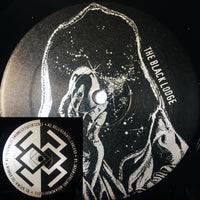
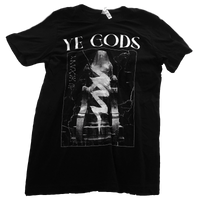
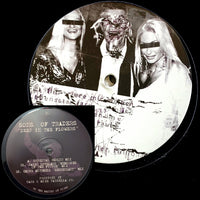
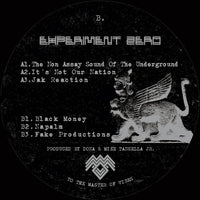
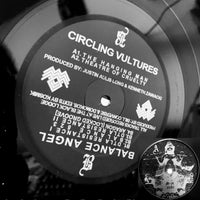
This was a lot of fun to do, thank you!!